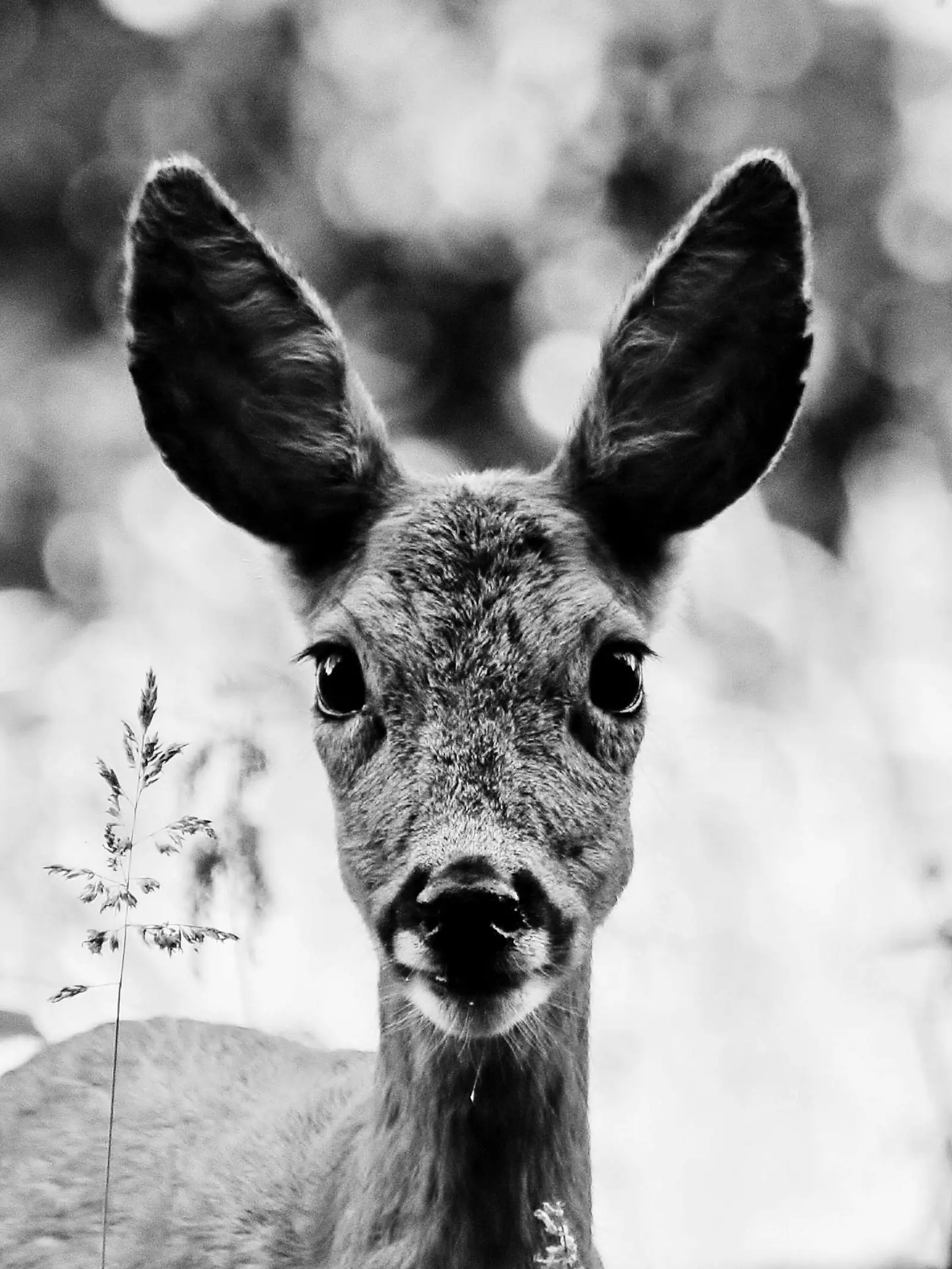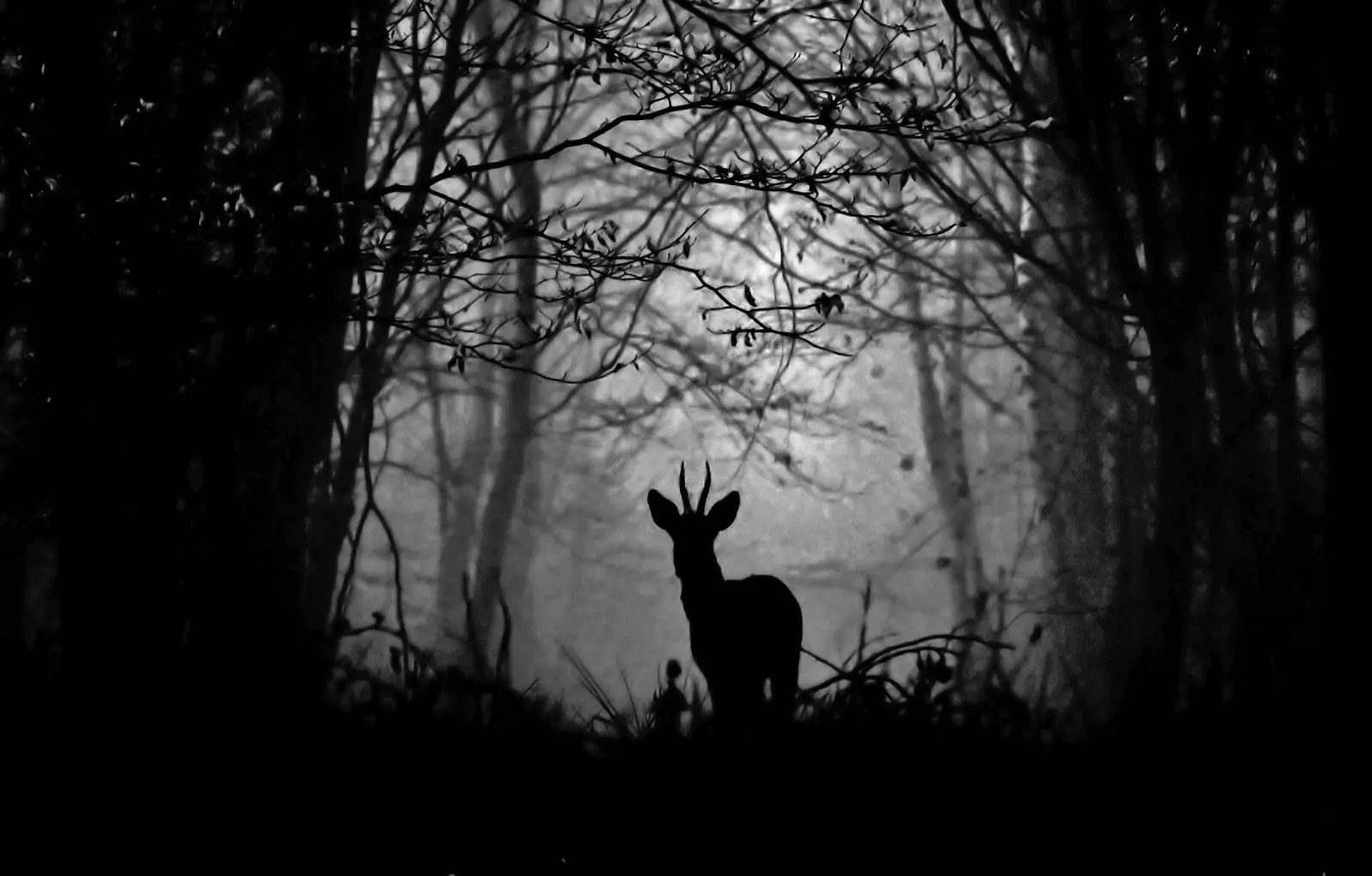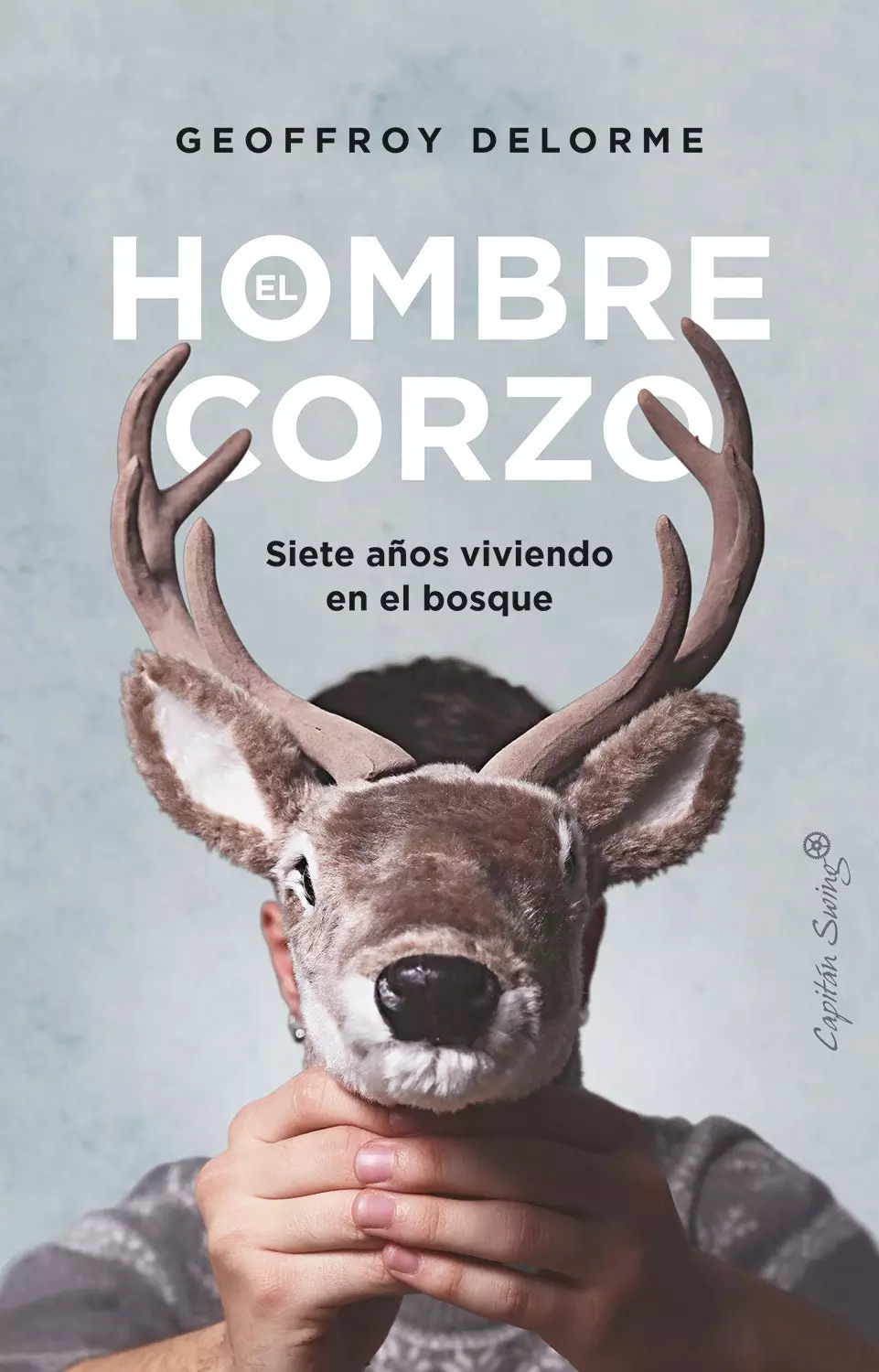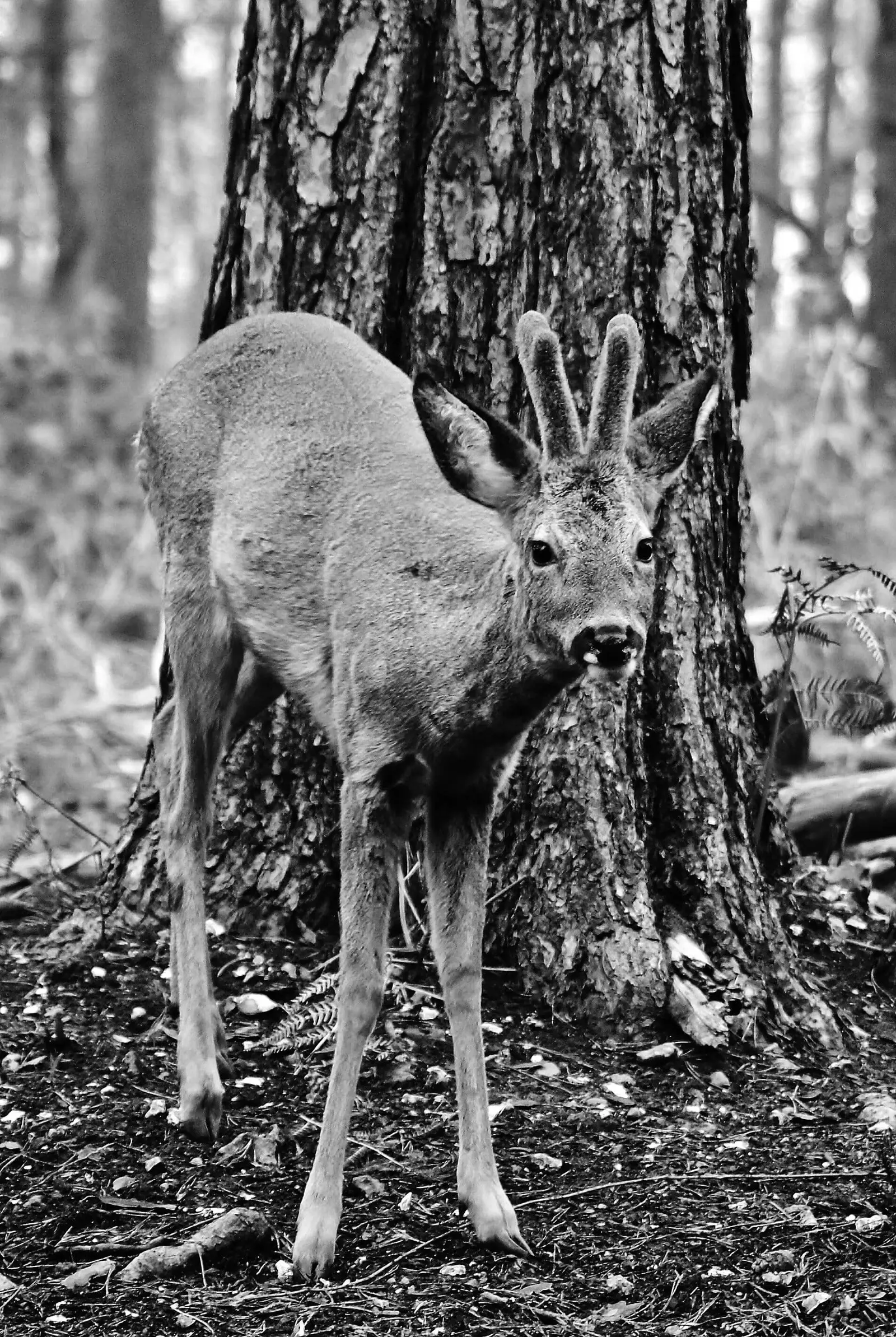Can you imagine what it would be like to live day and night in a forest? What if you did it with what you were wearing or with just what was necessary? It's hard to imagine yourself surviving a freezing night, heavy rain, or running to avoid being shot by hunters as if you were part of a herd of wild animals . The truth is that there are few people who can tell, one of them is the immersive ecologist, wildlife photographer and French writer Geoffroy Delorme, who has just published his latest book 'Man roe deer. Seven years living in the woods '(Ed. Captain Swing), where he tells how he survived this and a thousand other adventures in the forest of Bord-Louviers, in Normandy.
Delorme's book moves and does so for many reasons: because there are few people who understand and respect the balance of nature in this way, because his sensitivity, for and with the forest, gives goosebumps, and because it is difficult not to wonder who in the XXI century would be able to leave everything and blend into a herd of roe deer . We have told you many times about the “I leave everything to live an adventure” syndrome, but you have to be very brave and love the forest a lot to want to participate in it at this level.
“I think there is a fracture between the human being and his civilization. Civilization softens and dulls human life; while the human, the most animal, has vanished. This is perhaps what some people are looking for today, that return to the sources from which they have lost everything , knowledge, relationships with others. Life outdoors gives meaning to life itself, recreates a bond with others and simple moments of happiness are more accessible even though this life is difficult and without guarantees”, explains the author to Traveler.es when we ask him why there are more and more people wanting to leave everything.
A LIFE GIVEN TO THE FOREST
The love story with the forest Geoffroy Delorme (France, 1985) begins in his childhood, when as a child he understood that his place was not in the urban world, at school, but in nature. While he was growing up he was trying to go into the forest alone , those small incursions were fanning a flame that ended up leading him to leave his house - his parents' house, where he lived at the age of 19 - to enter, with what he needed to live, and spend seven years immersed in nature and during all seasons of the year, including the frigid winter.
"Surviving in the forest is no insurmountable feat. . To achieve this, the essential thing is to have adequate material and to organize yourself well. You have to know how to dose your energy, control your heart rate with slow breaths and adapt to the cold of winter”, he stresses in one of the chapters of his book ‘Man deer’. Although he doesn't consider himself an environmental activist, he ate nothing but roots, mushrooms, and plants during that time. -something for it was prepared conscientiously-, because the hunt was not in his plans.

Portrait of Magali.
“You don't need a lot of material but you do need a lot of time. There are no real obligations or limitations other than those related to one's own survival. When you have understood the principle of collection, storage, seasonality and take care of your equipment; especially your knife and your bottle of water, you can go very far. It can be said that wildlife is costly to the body in terms of its lifespan, but the intensity of this life is worth it ”, he explains to Traveler.es.
He slept during the day, in small intervals of time, and at night he took the opportunity to walk, and thus not freeze to death (it was about to happen to him several times), he collected water through his sock and warmed himself with the fire of small bonfires. So he managed to be one more in the forest , and go unnoticed among all the wild fauna that lives sheltered from it as foxes, wild boars and roe deer.
It was with the latter that he established a very special relationship, almost so much so that they allowed him to enter his pack and communicate with his own codes. “ To share life with roe deer, you have to give up a number of things . In general, all human codes of life in society must be abandoned, such as saying goodbye when leaving. You also have to give up certain conventions, such as eating at fixed times or sleeping at night. With Daguet (his first deer friend of his) I discover the complexity of the nightlife in the forest and I try to integrate myself as much as possible”, he narrates in his book.

Chevi at night.
And so it is, Daguet was his first deer friend, but not the last. Sipointe, Chévi, Fougère, Mef and other roe deer accompanied him on his adventure, The experience will be such that you will even be able to teach them how to avoid the hunters in the forest and get them to safety . With them you will live moments of all kinds: births, deaths, walks, afternoons in the sun, spontaneous games, naps and even days of searching for food. Something that shows us that the human being can perfectly connect with other living beings in their natural habitat.
With Chévi, he will be the one with whom he establishes a closer relationship, of deep friendship. . “It is the first time that a roe deer shows me its affection in this way. I feel an enormous mixture of happiness, fullness, pride... Using licks, Chévi cleanses me and “tastes” me to memorize my unique smell, which will seal our friendship forever”, he explains in an excerpt from the book.
Thanks to his story we learn more about these fascinating animals, such as the fact that, for example, they do not establish hierarchies, or that when a roe deer is left without its plot of land (deforestation or the creation of roads is usually the reason for this). ) he is capable of letting himself die in it.
“To be part of the "herd" it is necessary first of all to be considered as one of the links of this herd. Outdoor life taught me one thing: nature is a horizontal model of society where circles intersect and come together to form a tapestry . Sometimes the simple idea of wanting to protect nature implies a hierarchy of life, as if the all-powerful man could protect a fragile nature. The man arrives conquering the nature without being able to integrate into it. Unfortunately for us, man is just one more link. So it is up to us to reweave the bond we have broken so that this beautiful tapestry of life is enjoyable to live in and to watch.”

'The roe deer man: Seven years living in the forest'
THE END OF HIS BOOK AND THE BEGINNING OF THE AUTHOR
After seven years he decides to leave the forest, pushed by his health condition that worsens in the last months of his adventure. And he makes it moved to tell his story and give back something of all that the forest has given him for so many years. “ I wrote ‘Man deer’ in 2019 when Chévi, the deer who trusted me the most, died. I presented it at literary fairs to publicize this possible relationship between animals and humans. I already had some success before my editor discovered me”, he explains to Traveler.es.
And he makes it clear that he did not leave the forest due to illness, what's more, he tells us, that the roots, fruits and plants with which he ate during the seven years strengthened his intestinal microbiota (the one that helps to balance the bacteria), and that it is when he returns to the urban world, when he gets infected with different viruses and bacteria, from which he had managed to get rid of.
Since then, he has returned to the forest but his job has been to help build ties between the human and animal worlds, showing that there are other possible existences.

Portrait of Chevi.
“Human civilization profoundly affects every life on our planet through an industrialized system that has nothing to do with any other animals or plants it encounters. That is what I am trying to convey. I want to modify the behavior of my species and the world ”, he underlines in an interview with Traveler.es.
Since the publication of his book few things have changed, he confesses that it takes time to rebuild the felled forests in the entire Bord-Louviers area . He also doesn't seem to feel adapted to human life, and despite having returned to the forest countless times, he hasn't been around for so many years again.
“All the deer I knew died , being the last Chévi, who died a natural death. The others died on the way, hunting, deforestation... I am trying to find a balance between the forest, nourishing and protective, and this uncontrollable civilization. Is not easy, but above all I want a happy life and happiness is not found in conflict but in benevolence . Every day I deal with many things that do not suit me and I return to the forest to connect with the wild world. It's the only balance I've found so far."
